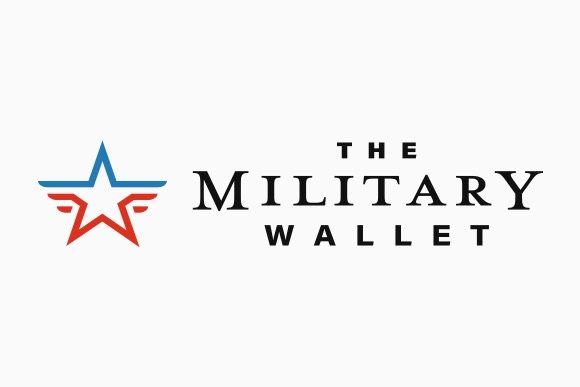While I normally try to write to people looking to either retire or separate, this article is intended for people who plan to retire. However, there are some items of consideration for separating members as well. This article is the first of two articles about how to better understand your post-military life, specifically your cash flow needs.
One of the major considerations of military retirement is what you want to do in terms of replacing your military job. We spend a lot of time talking about the financial transition, but don’t always talk about what type of work you will want to do (assuming you want to work at all). There are many variables that can impact your available options, such as your age, retiring paygrade, family status, financial position, job opportunities, interests, and many other considerations. Evaluating these options can help you figure out what I call your “post-military job risk mindset.”
What is your post-military job risk mindset (we’ll call it job risk mindset for short)? Simple-it is your ability to make your life into what you want after leaving the military. While it’s hard to quantify your job risk mindset (there is no sliding scale or fancy chart), it’s important to take some time to consider your priorities so that you can plan accordingly.
Retiring military members have an opportunity that very few people have—they have the chance to literally reinvent their life, then live that life for 40-50 more years. However, your ability to take advantage of this opportunity can vary, based upon any number of factors.
Why is it important to think about your job risk mindset? There are many reasons, but I’ll list four that I think are most important to consider:
Longevity – Career & Life Expectancy
Long gone are the days in which my grandfather’s generation served until their late 50’s or early 60’s, sat on a pension for 5-10 years, then eventually died. Today’s military retirees can find themselves with a military pension in their late 30’s or early 40’s and the opportunity to spend 40 more years in a completely different career field.
However, the downside of increased longevity is the need for longer-range financial planning, more advanced estate planning, anticipating insurance needs, and most importantly, the ability to work further into your lifetime.
While we won’t go into these topics, it’s important to note that having increased longevity means that you should find something that you can see yourself doing for the next 30-40 years, or have the ability to pivot into another field should you need to.
Career Broadening Opportunities
Over the course of my career (dating back to the early 90s), the military has made a much more focused effort to send military members back to society with skills that industry can value. While there always seems to be a dearth of leadership in many big companies (which headhunter firms seem to capitalize on), I mean that today’s technicians have opportunities to get recognized credentials (i.e. IT professionals can get IT certifications, medics can receive medically-recognized certifications, etc.).
This means that for many people, a logical post-military step is a step in the same direction. A navy electrician’s mate has an excellent opportunity to become a master electrician over the course of their career, and parlay that into a business after retirement.
You can use this as an opportunity to do a deep dive into your military specialty and become a highly-sought after technician. Or you can use your military transition as an opportunity to leverage your entire skill set and seek out different professional challenges.
There is no right or wrong answer – only what is right or wrong for your situation. Regardless of which choice you make, a strong financial footing can give you’re the opportunity to pivot in a new direction should the need or desire surface.
Passion – Will You Enjoy Your Post-Military Career?
Perhaps there’s something that you’ve always wanted to do, but you got into the military ‘rut.’ The rut (another term I made up, because I don’t know what anyone else calls it) can happen after you’ve committed yourself to a 20-year career, but will be damned if you stay in another day. This usually happens between the 10-14 year mark, and you just wake up one day and say, “I can’t wait to get out, so I can do (fill in the blank).”
Sometimes, you actually fill in the blank because you’ve realized that there is something you wanted to do: go into another career field, work as a volunteer, or go back to school. Sometimes, you haven’t filled in the blank yet, but your current field has you discouraged, and you just want to quit (except you need the pension).
Sometimes, your military retirement is a step towards your financial security, and that’s all you care about—your second career could be stocking shelves at the local grocery store (I used to do this—not as fun as it sounds), but you just care about financial security for your family.
Whatever your ‘passion’ is, it will have an impact on your post-military career satisfaction—the more closely your next career is aligned to your passion, the more likely you are to be happy in it, and the more likely you are to succeed.
Financial Security – Will Your Second Career Pay the Bills?
Perhaps there’s something you’ve always wanted to do, such as start a business or go back to school. However, you may have incurred obligations along the way (like starting a family, or buying a house), and you’ve got certain expenses or obligations that will stay with you after retirement. You may not be able to afford any decrease in your salary, even for the shortest time, while you build your business. While I have a lot of respect for many of my GS civilian & contractor counterparts, a lot of their ranks are filled with the ‘walking dead’ who are not satisfied with where they are because they weren’t in a position to do what they really wanted to do or never took the time to figure it out.
All of these factors (and more) can contribute to your sense of anxiety, confusion, and nervousness about getting out. Look at me—I’m a financial planner who mapped out this career 5 years before my retirement and still have anxiety about the risk I’m taking.
With that said, it is still important to consider these factors & map out a plan that allows you to do what you want without settling for less, while meeting your personal or family obligations. There is no right answer, but many people find themselves in that same rut they experienced on active duty because they went in the same direction (letting their career path dictate their next move), but expected a different result (it’ll be better once I’m off active duty).
In my follow-up article, I’ll discuss some of the cash flow considerations that may steer you away from what you really wanted to do, and how you can mitigate that cash flow risk to keep your desired options on the table!
As always, this blog serves to answer your questions and address concerns. If you like this blog, please forward it on to other people who may benefit.




About the comments on this site:
These responses are not provided or commissioned by the bank advertiser. Responses have not been reviewed, approved or otherwise endorsed by the bank advertiser. It is not the bank advertiser’s responsibility to ensure all posts and/or questions are answered.